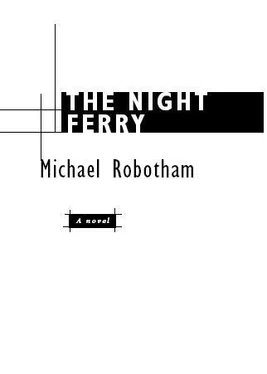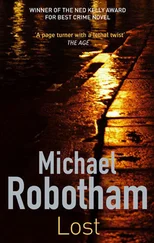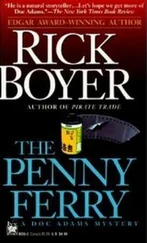I show him the photograph. His eyes narrow as he concentrates. I wonder what he remembers about guests—their faces, their cases, the tips they leave?
“Room 12,” he announces, nodding vigorously. His English is poor.
Ruiz turns back to the desk clerk. “You must have a record. She might have stayed here during the second week of February.”
She glances over her shoulder, worried about the manager, and then taps at the keyboard. The screen refreshes and I glance down the list. Cate isn’t there. Wait! There’s another name I recognize: “Natalia Radzinsky.”
The porter claps his hands together. “Yes, the countess. She had one blue bag.” He measures the dimensions in the air. “And a smaller one. Very heavy. Made of metal.”
“Was she with anyone?”
He shakes his head.
“You have a very good memory.”
He beams.
I look at the computer screen again. I feel as though Cate has left me a clue that nobody else could recognize. It’s a silly notion, of course, to imagine the dead leaving messages for the living. The arrogance of archaeologists.
The Red Tulip Hotel has sixteen rooms, half of them overlooking the canal. Mine is on the first floor and Ruiz’s room is above me. Sunlight bounces off the curved windows of a canal boat as it passes, taking tourists around the city. Bells jangle and bike riders weave between pedestrians.
Ruiz knocks on my door and we make a plan. He will talk to the Immigration and Naturalization Service (IND), which deals with asylum seekers in the Netherlands. I will visit Hassan Khan’s last known address.
I take a taxi to Gerard Doustraat in a quarter known as de Pijp, or “the Pipe” as my driver explains. He calls it the “real Amsterdam.” Ten years ago it had a seedy reputation but is now full of restaurants, cafés and bakeries.
The Flaming Wok is a Chinese restaurant with bamboo blinds and fake bonsai trees. The place is empty. Two waiters are hovering near the kitchen door. Asian. Neat, wearing black trousers and white shirts.
From the front door I can see right through to the kitchen where pots and steamers hang from the ceiling. An older man, dressed in white, is preparing food. A knife stutters in his hand.
The waiters speak menu English. They keep directing me to a table. I ask to see the owner.
Mr. Weng leaves his kitchen, wiping his hands on a towel. He bows to me.
“I want to know about the people who were living upstairs.”
“They gone now.”
“Yes.”
“You want to rent frat? One bedroom. Very crean.”
“No.”
He shrugs ambivalently and points to a table, motioning me to sit, before he orders tea. The waiters, his sons, compete to carry out the instructions.
“About the tenants,” I say.
“They come, they go,” he replies. “Sometimes full. Sometimes empty.” His hands flutter as he talks and he clasps them occasionally, as if fearful they might fly away.
“Your last tenants, where were they from?”
“Everywhere. Estonia, Russia, Uzbekistan…”
“What about this boy?” I show him the charcoal drawing of Hassan. “He’s older now. Sixteen.”
He nods energetically. “This one okay. He wash the dishes for food. Others take food from bins.”
The green tea has arrived. Mr. Weng pours. Tea leaves circle in the small white cups.
“Who paid the rent?”
“Pay money up front. Six months.”
“But you must have had a lease.”
Mr. Weng doesn’t understand.
“A contract?”
“No contract.”
“What about the electricity, the telephone?”
He nods and smiles. He’s too polite to tell me that he doesn’t have an answer.
I point to the girl in the drawing and take out the photograph of Samira. “What about this girl?”
“Many girls in and out.” He makes a circle with his left forefinger and thumb and thrusts a finger through the hole. “Prostitutes,” he says apologetically, as though sorry for the state of the world.
I ask to see the flat. One of his sons will show me. He takes me through a fire door that opens into an alley and leads me up a rear staircase to where he unlocks a door.
I have been in depressing flats before, but few have disheartened me as quickly as this one. It has one bedroom, a lounge, a kitchen and a bathroom. The only furniture is a low chest of drawers with a mirror on top and a sofa with cigarette burns.
“The mattresses were thrown away,” Mr. Weng’s son explains.
“How many lived here?”
“Ten.”
I get the impression he knew the occupants better than his father.
“Do you remember this girl?” I show him the photograph.
“Maybe.”
“Did she stay here?”
“She visited.”
“Do you know where she lives?”
“No.”
The tenants left nothing behind except a few cans of food, some old pillows and a couple of used international phone cards. There are no clues here.
Afterward, I catch a taxi and meet Ruiz at a bar in Nieumarkt, a paved open square not far from the Oude Kerk. Most of the outside tables are empty. It is getting too late in the year for backpackers and American tourists.
“I didn’t think you were going to buy one of those, sir,” I say, pointing to his guidebook.
“Yeah, well, I hate asking directions,” he grumbles. “I’m sure someone is going to say, “You want to go where ?” That’s when I’ll discover I’m in the wrong bloody country.”
A couple at the next table are locals. They could be having an argument or agreeing completely. I can’t tell.
“The Dutch can squeeze more vowels into a sentence than anyone else in the world,” says Ruiz, too loudly. “And that Dutch ‘j’ is a deliberate bloody provocation.”
He goes back to his guidebook. We’re sitting on the western flank of the red light district, in an area known as de Walletjes (the Little Walls).
“That building with all the turrets is the Waag,” he explains. “It used to be a gatehouse to the old city.”
A young waitress has come to take our order. Ruiz wants another beer, “with less froth and more Heineken.” She smiles at me sympathetically.
Opening his marbled notebook, Ruiz relates how Hassan and Samira Khan were smuggled across the German border into the Netherlands in the luggage compartment of a tourist coach in April 2005. They were taken to an application center at Ter Apel and were interviewed by the Immigration and Naturalization Service. Hassan claimed to be fifteen and Samira seventeen. They told the authorities they were born in Kabul and had spent three years living in a refugee camp in Pakistan. After their mother died of dysentery, their father, Hamid Khan, took the children back to Kabul where he was shot dead in 1999. Hassan and Samira were sent to an orphanage.
“That’s the story they told in every interview, together and independently. Never wavered.”
“How did they get here?”
“Traffickers, but they both refused to name names.” Ruiz consults his notebook again. “After they were screened, they were housed at a center for underage asylum seekers operated by the Valentine Foundation. Three months later they were moved to the campus at Deelen where 180 children are housed. In December last year both their visas were revoked.”
“Why?”
“I don’t know. They were given twenty-eight days to leave the Netherlands. An appeal was lodged but they disappeared.”
“Disappeared?”
“Not many of these people hang around to get deported.”
“What do you mean ‘these people’?”
Ruiz looks at me awkwardly. “Slip of the tongue.” He pauses to sip his beer. “I have the name of a lawyer who represented them. Lena Caspar. She has an office here in Amsterdam.”
Читать дальше












